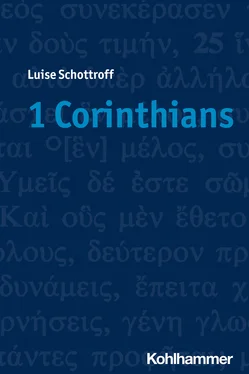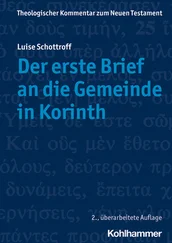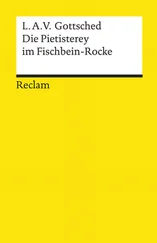In Chapter 10 Paul relates the »we« of his time and place to Israel in the wilderness. The »we« learn from »our fathers and mothers« who went out of Egypt (10:1). This »We« of the present are the sōma Christou (10:16; 12:27). Paul includes himself in this »we« (for example, 2:6). In 10:11; 1:18; 2:6, he defines the »we« eschatologically. He speaks of »us who are being saved«/ sōdzomenoi (1:18). The verdict at God’s judgment, about which no one can know anything, is for them a hope and source of strength (1:18). They are experiencing already now the beginning of the end of the power and might of the »aeons« of this world (10:11; on this see the basic information on Concepts of Time and Eschatology at 1:7 above). Therefore the »we« of the congregation has become identical with God’s Messiah and, as the body of Christ, it is the authority for deciding the legitimacy of all God’s ambassadors (3:17, 22, 23). Statements like these show that, in the present and in the everyday world and its power structures, the body of Christ/the sōma Christou isthe Messiah. The emphatic language about the »we« in 2:6–16 or 3:17, 22, 23 does not exclude the fact that Paul also sharply criticizes the congregation.
6 We do, however, speak about wisdom, a wisdom among those who are perfect. But this is a wisdom that does not depend on this world, nor on those ruling this world. They are in the process of losing their power. 7 We are speaking about divine wisdom, hidden in a mystery that God has prepared before all time, in order to enable us to share in the divine presence. 8 None of the rulers of this world has known it. For if they had known wisdom, they would not have crucified the representative of divine wisdom. 9 Much more, what has happened is what has been written: »What no eye saw and no ear heard and what arose in no human heart, that is what God has prepared for those who love God.« 10 God has revealed it to us through the Spirit. For the Spirit fathoms everything, even the depths of God. 11 What people can understand other people, if the human spirit is not within them? So it is also true that no one understands God without God’s Spirit. 12 We have not received the spirit of the world, but the Spirit that comes from God, by which we understand what God has given us. 13 We pass on this experience, not in the learned language of human wisdom, but in the language that the Spirit teaches. To the people who are filled with the Spirit, we open the gifts of the Spirit. 14 People who simply live for themselves, do not accept the gift of the divine Spirit, because they consider it to be foolish. They cannot comprehend the gift, for it can be effective only with the assistance of the Spirit. 15 But those with the Spirit examine everything, although their divine spirit can be evaluated by no human. 16 For, »Who has known the thoughts of the Eternal One, who will teach them?« We have the thoughts of the Eternal One.
This section has often been felt to be an alien element within the letter. The primary causes for that were, first, the concept of the mature ( teleioi ) in 2:6 conflicting with 3:1–4, and second, the language as a whole. Parallels to this language are found in Jewish wisdom literature, in Gnosticism and in Hellenistic cults. 141Nevertheless, I am already here setting forth the following conclusions: the text is from Paul, and it is not helpful to assume that he is arguing with opponents (see on 1:10). The »we« of the text is of central significance to what is being discussed. It refers to the congregation as the body of Christ (see the basic information after 2:5). The »we« does not refer exclusively to especially qualified proclaimers or to a group within the congregation who see themselves as set apart by God’s revelation. Paul is speaking in this section about the overwhelming happiness experienced by the »we,« the congregation.
Adolf Deissmann (1957, 106, n.2) correctly wrote about 2:6–16 that these sentences were »one of the greatest of Paul’s confessions.« He said that they had to be »the starting-point for an understanding of Paul on the great scale.«
2:6The experience of happiness in the body of Christ is broached (2:6, 7, 13). The word lalein includes not only rational interpersonal speaking but also the babble of children, music, chatter and the language of animals. 1421 Corinthians 12–14, the three chapters about experiences of the pneuma , God’s Spirit, can be read as a commentary on 2:6–16. It is true that in 1 Corinthians 14 Paul criticizes chaotic worship services, but he does not render a categorical critique of glōssolalein , the Spirit-empowered speaking in many native tongues (see the basic information on 14:1). In 14:15 it becomes clearer and more detailed what he means here in 2:6–16 by the Spirit-empowered speaking ( lalein ): to pray and sing with the heart 143 and the mind, that is, with pneuma and nous . For example, there are songs and prayers in one’s native language, which are incomprehensible to others (14:14). In German we can say about this: they are coming from the bottom of one’s heart; Paul calls this »praying with the pneuma .« He doesn’t want to distinguish this praying and speaking from, or, indeed, play it off against, a praying and singing in the lingua franca. Both are important. The lalein in 2:6 refers not only to communicatory speaking but also to praying from the bottom of one’s heart and to singing. Paul is no stranger to singing in the »language of angels« (see 13:1). It is not erroneous also to include visions in the experience of lalein . 1442:6–16 also includes rational speech, as especially 2:16 shows, where Paul emphasizes the word nous .
In order to demonstrate the riches of Spirit-empowered lalein , we should therefore already here take into consideration a text that is traditionally used to elucidate the »speaking in tongues« discussed in 1 Corinthians 14: The Testament of Job. It is a Jewish writing from the time of the Roman Empire, a writing whose precise date cannot be determined. This document narrates revelatory experiences. Job speaks with his three daughters at the end of his life and bequeaths them three sashes, which God had given him when he was in great distress. He had laid them on his daughters, and immediately all their sicknesses disappeared:
47.7 And then my body got strength through the Lord as if I actually had not suffered a thing. 8 I also forgot the pains in my heart. 9 And the Lord spoke to me in power, showing me things present and things to come. 10 Now then, my children, since you have these objects you will not have to face the enemy at all, 11 but neither will you have worries of him in your mind, since it is a protective amulet of the Father. Rise then, gird yourselves with them before I die in order that you may be able to see those who are coming for my soul, in order that you may marvel over the creatures of God.
48.1 Thus when the one called Hemera arose, she wrapped around her own string just as her father said. 2 And she took on another heart—no longer minded toward earthly things— 3 but she spoke ecstatically in the angel dialect, sending up a hymn to God in accord with the hymnic style of the angels. 145
The two other daughters of Job also wrap sashes around themselves and speak and sing in the language of angels. Here also rational language and the language of angels are not differentiated from one another. Both belong together. Job passes his revelatory experience on to his daughters. As he speaks he makes it clear that the revelation is an encounter with God, who heals the body and frees the inner person from thoughts about the devil (47.10) or about earthly things (48.2)/ the things of the kosmos (49.1, 50.1). Paul also immediately addresses this liberation from the structures of the kosmos /the world in 22:6b, 8: revelatory experiences have nothing to do with the wisdom of this age and the archons/the rulers of this age (on this, see the discussion on 2:8). He provides a positive definition of the content of the revelation and of the lalein , the speaking and the singing about it, as wisdom among the mature(2:6; on this see also 14:20). Maturity has two dimensions:
Читать дальше












